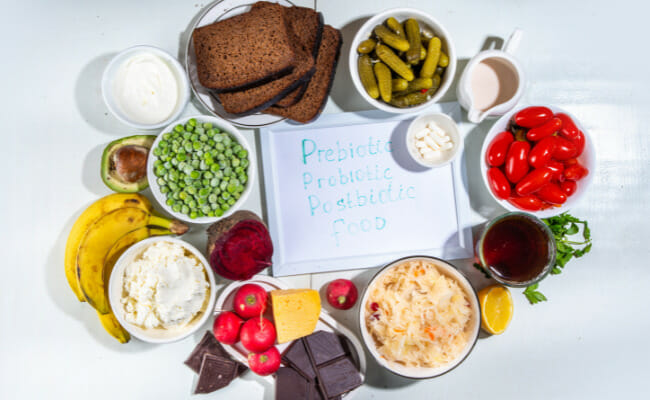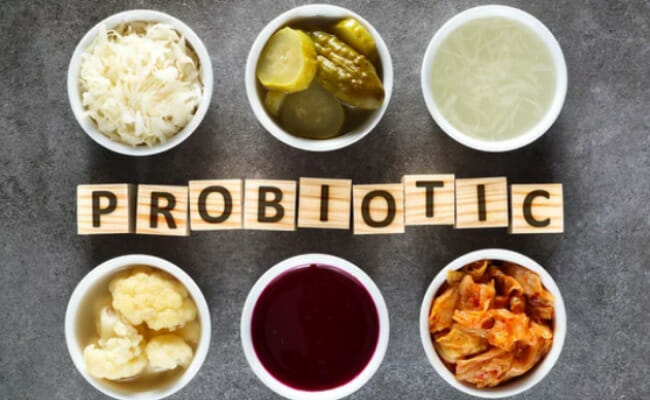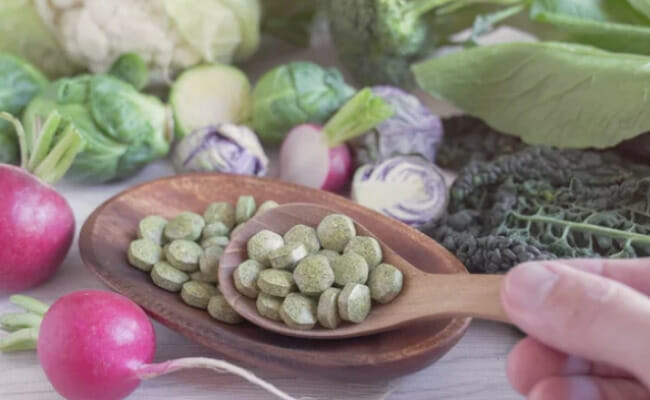Prebiotics vs. Probiotics: What to Know
The terms prebiotics and probiotics are pretty popular in nutrition nowadays. And although they sound alike, their roles in your gut health are quite different.
While probiotics refer to healthy bacteria, prebiotics serve as the foods for these bacteria. Prebiotics are vital to a healthy microbiome as gut bacteria act upon them. This article will discuss all you need to know about both.
Some prebiotic or probiotic supplements can provide both for a healthy gut. But before you rush out to purchase those expensive supplements, you should know that many foods already contain these naturally.
What are Prebiotics and Probiotics?
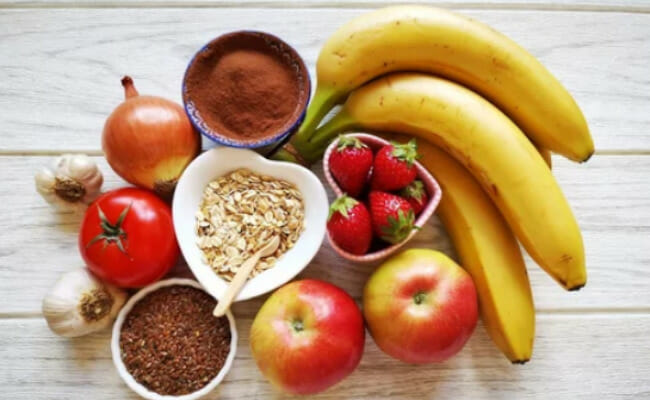
Photo credit: Adobe Stock
Both prebiotics and probiotics play vital roles in good health in humans. A balanced intake of prebiotics and probiotics can provide you with enough good bacteria to keep your gut healthy. But what are they?
Prebiotics are substances that are in some carbs, especially fiber. Humans cannot digest prebiotics; however, good gut bacteria consume them.
Probiotics are good bacteria in some foods and supplements that benefit human health.
Why is Gut Bacteria Good?
Key point: Gut bacteria is beneficial in many ways. They feed the cells lining your digestive tract with essential nutrients.
Gut bacteria, collectively known as gut microbiota or gut flora, perform many essential bodily functions, including protection against fungi and harmful bacteria. It is known as the good or friendly bacteria in your digestive tract.
Several studies confirm that these beneficial bacteria can support immune system function, improve depression symptoms, and help with excessive weight gain, among other things. Gut bacteria influence the risk of colon cancer, type-2 diabetes, and inflammatory bowel disease.
In addition, some of these gut bacteria form short-chain fatty acids and vitamin K. The cells lining the colon rely strongly on the nutrients from short-chain fatty acids to effectively protect the gut from viruses, bacteria, and other harmful substances.
How does Food Affect Gut Bacteria?
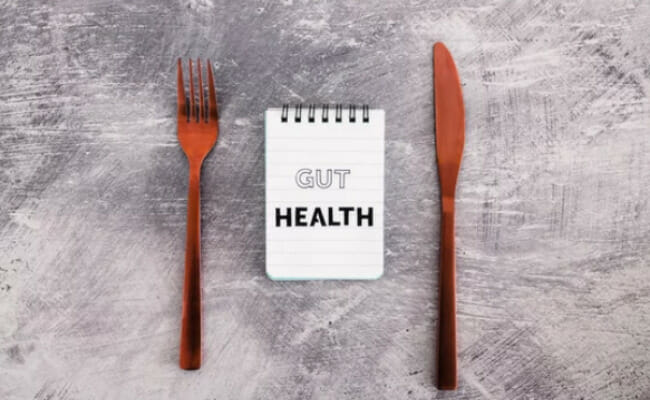
Photo credit: Adobe Stock
Key point: The foods you eat can provide a healthy balance between good and bad bacteria. Antibiotics and chemical residue on food can disrupt this balance in gut bacteria.
Your gut microbiome consists of microorganisms living within your gastrointestinal (GI) tract, known as gut microbiota. All these are present in your large intestine and affect your overall digestive health regarding nutrient metabolism.
Your diet and lifestyle choices significantly affect the different kinds of microorganisms in the GI tract. For instance, a diet high in sugar and fat negatively impacts gut bacteria and may support insulin resistance and other conditions.
Constantly feeding the harmful bacteria means they will grow and colonize faster since there won’t be enough good bacteria to stop them. This links to increased body mass index (BMI).
Also, pesticide-treated foods may negatively affect gut health. According to several studies, antibiotics may also permanently change some bacteria when consumed during adolescence and childhood.
Prebiotic Foods
Key points: Prebiotic foods are a kind of fiber beneficial bacteria can digest. They provide these beneficial bacteria with nutrients to support a healthy digestive system.
Prebiotic foods are a kind of dietary fiber found in fruits, vegetables, and legumes that promote the growth of bacteria. IN addition, this enables your gut bacteria to produce the necessary nutrients for your colon cells to promote a healthy digestive tract and boost immune function. Below is a list of prebiotic foods.
Asparagus
This popular vegetable is rich in prebiotic fiber and antioxidants.Moreover, it supports beneficial bacteria in the gut and may help prevent certain types of cancer.
Garlic
This tasty herb has prebiotic properties. It is proven to prevent harmful bacteria by promoting beneficial bacteria.
Oats
Whole oats are rich in beta-glucan fiber, which is known to promote better gut health, reduce bad cholesterol, and increase blood sugar regulation. Also, it may reduce the risk of cancer.
Bananas
Bananas contain lots of fiber, minerals, and vitamins. Furthermore, they also contain traces of inulin – a type of prebiotic fiber.
Barley
This grain is used to make beer and contains up to 20 grams of beta-glucan per 100 grams. It also promotes good bacteria and lowers blood sugar and cholesterol levels.
Onions
These are rich in FOS and inulin, which positively impact your immune system, gut health, and digestive system.
Leeks
Leeks are a kind of vegetable that contain so many nutrients and have a distinct flavor. Among these nutrients are prebiotic fiber and vitamin K.
Cocoa
This prebiotic food contains flavanols that promote gut health. In addition, people use cocoa beans to produce chocolate and add cocoa powder to oatmeal, smoothies, and other recipes.
Chicory
People use chicory root as a coffee replacement. Around 68% of its fiber is prebiotic and helps improve digestion. Also, it contains antioxidants that can help to protect your liver.
Dandelion greens
These fiber-rich vegetables are great for salads. They help to improve good bacteria and have anti-inflammatory and antioxidant effects.
Jerusalem artichokes
Also known as sunroot, earth apples, or sunchoke, this vegetable contains around 2 grams of inulin fiber per 100 grams. Note that this is different from regular artichokes.
Other food sources of prebiotic fiber include apples, berries, honey, tomatoes, beans, peas, seaweed, and cow’s milk. Moreover, most prebiotic foods are carbohydrates, except for non-carbohydrate oligosaccharides like cocoa.
There aren’t so many prebiotic-inherent foods. Plus, many high-prebiotic foods like beans and artichokes aren’t regular parts of most people’s diets. For this purpose, synthetic prebiotics is used as additives and supplements to improve nutritional content.
Health Benefits of Prebiotics
Prebiotic foods promote a healthy digestive system by stimulating the growth of good bacteria. Your beneficial gut bacteria turn prebiotic fiber into short-chain fatty acids essential for gut and metabolic health.
Besides giving you a healthy gut, prebiotic foods help your immune function, appetite, blood sugar control, and energy outflow. Studies have shown that prebiotics consumed in specific amounts may improve health in many ways, including:
- Improving certain gut-related conditions, such as constipation.
- Enhancing some aspects of metabolic health, like cholesterol and blood sugar.
- Reduction of inflammation, appetite, and body fat.
However, this isn’t an exhaustive list as several other benefits of prebiotics are yet to be proven.
Probiotic Foods
Key points: Probiotic foods naturally have good bacteria. Many foods that contain probiotics can be prepared at home or bought at a grocery store.
Fermented foods, such as yogurt, naturally contain beneficial bacteria that provide your body with numerous health benefits, including controlling the spread of germs. Plain yogurt can be a great option to include good bacteria in your diet.
Fermented foods are also a good option since they contain good bacteria that feed off naturally-occurring fiber or sugar in your food. However, these good bacteria may be absent in pasteurized fermented foods.
Some examples of probiotic foods are:
Yogurt
There are several health benefits of consuming yogurt. For its probiotics, choose only yogurt with live or active cultures.
Kefir
This fermented milk drink is prepared by adding kefir grains to goat’s or cow’s milk. Like yogurt, it is also an excellent known source of probiotics and helps people with lactose intolerance.
Sauerkraut
This refers to cabbage that bacteria has finely cut and fermented from lactic acid. It is popular in Eastern Europe for its rich antioxidants, minerals, and vitamins. Ensure you choose an unpasteurized brand with active bacteria.
Kimchi
This spicy Korean dish is typically made from fermented cabbage and other vegetables. It contains lactic acid bacteria, which provide better digestive health.
Kombucha tea
This popular tea is a fermented green or black tea drink available in many parts of the world. It is popular in providing health benefits for your body.
Pickles
These are made from fermented cucumbers conserved in salty water. However, not all pickles are probiotics. For example, pickles made with vinegar have no probiotic effect.
Probiotic bacteria are also in other foods, including fermented vegetable products like miso, naso, and tempeh and some fermented cheeses like Gouda, Swiss, Cheddar, and Parmesan.
Health Benefits of Probiotics
Probiotics change your gut bacteria composition or metabolic activity of your existing bacteria to grow more beneficial bacteria in your gastrointestinal tract. Probiotic-rich foods may help manage:
- Irritable bowel syndrome
- Cholesterol levels
- Digestion
- Diarrhea
- Constipation
- Lactose intolerance
- Autoimmune disease
- Weight gain
Should You Take Supplements?
Prebiotics and probiotics are obtainable as dietary supplements to provide the right balance of gut bacteria for your overall health. You can treat certain health conditions with prebiotic supplements, in addition to improving the overall health of your gut.
Research has shown that prebiotic and probiotic supplements may aid people with conditions related to the gut, blood sugar issues, and more. However, concerning probiotics, the investigation of the health effects of consuming prebiotic supplements is limited.
Probiotic supplements are available commercially in several products. It is essential to look for those with live and active cultures (not expired products), multiple bacteria species, and enough bacteria to form colonies.
Conclusion
People often confuse prebiotics with probiotics, but there aren’t the same. Probiotics are active microorganisms in your gut, and certain foods and probiotic supplements have health benefits when consumed correctly.
Then again, prebiotics comprises nutrients that enhance these microorganisms’ growth in the gut. In this respect, prebiotics has a reputation as “microbiome fertilizers.”
Certain foods contain both prebiotics and probiotics. In addition, foods that have this combination are symbiotic foods. They include cheese, sauerkraut, kefir, and some types of yogurt.

